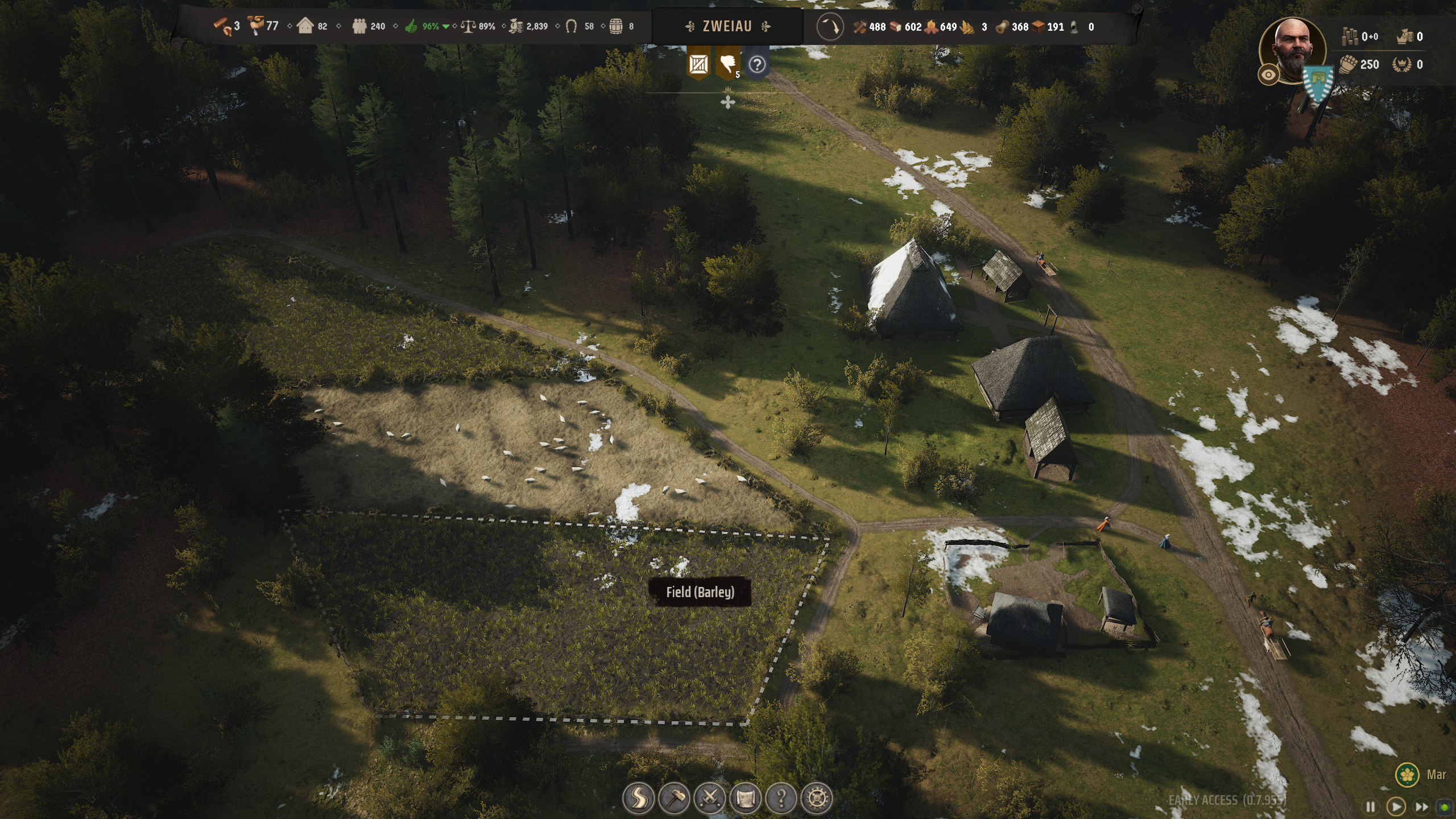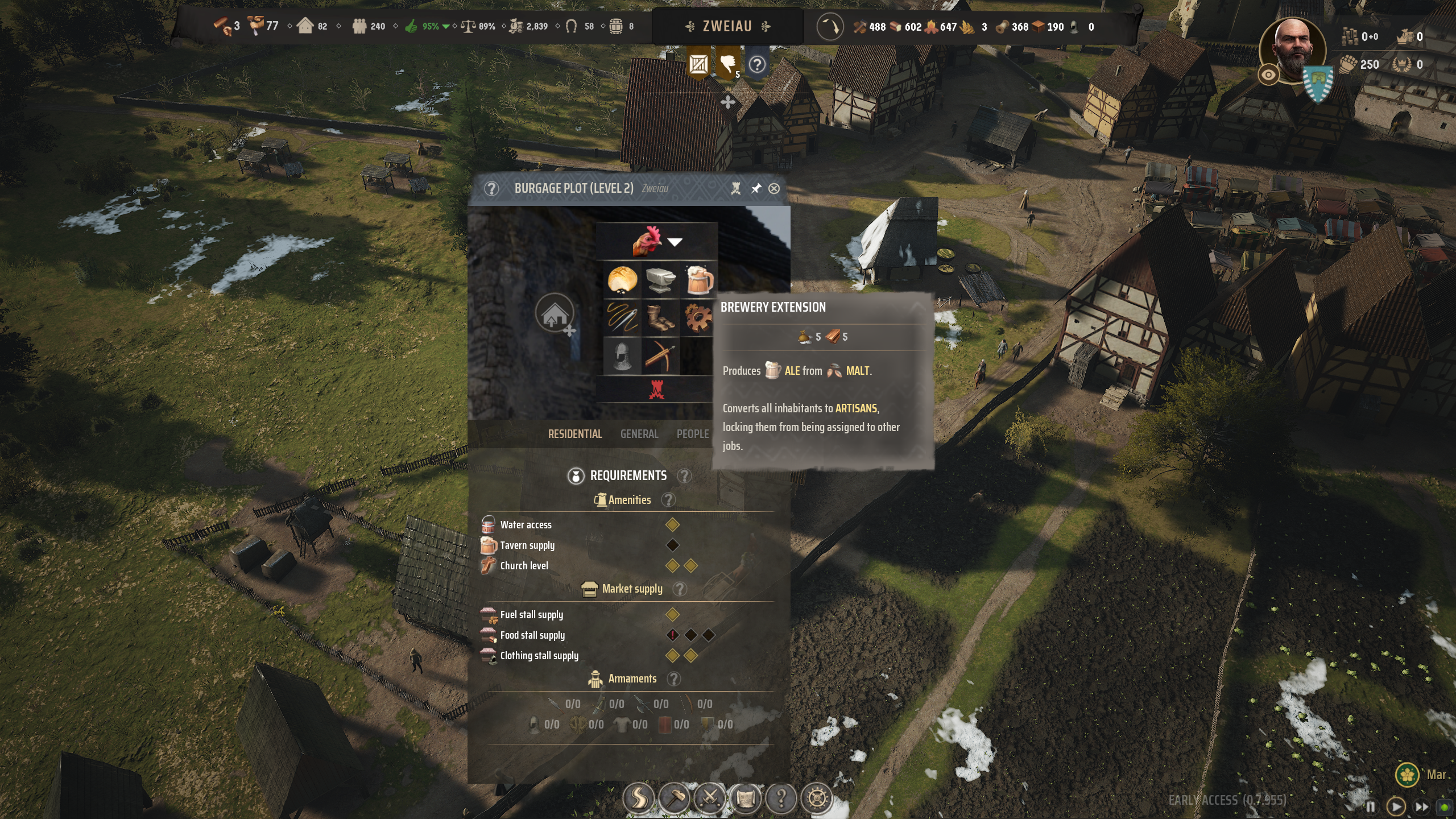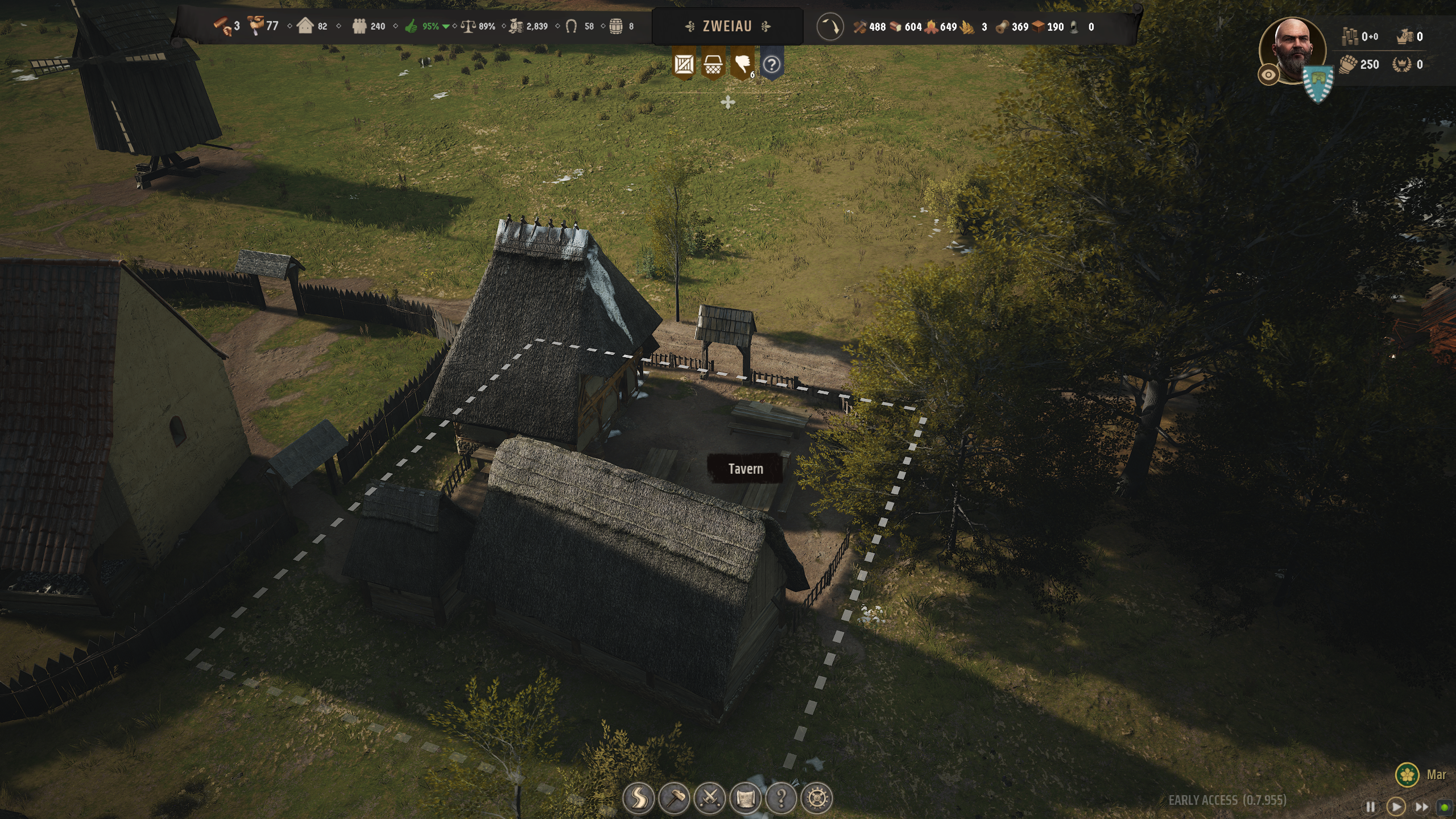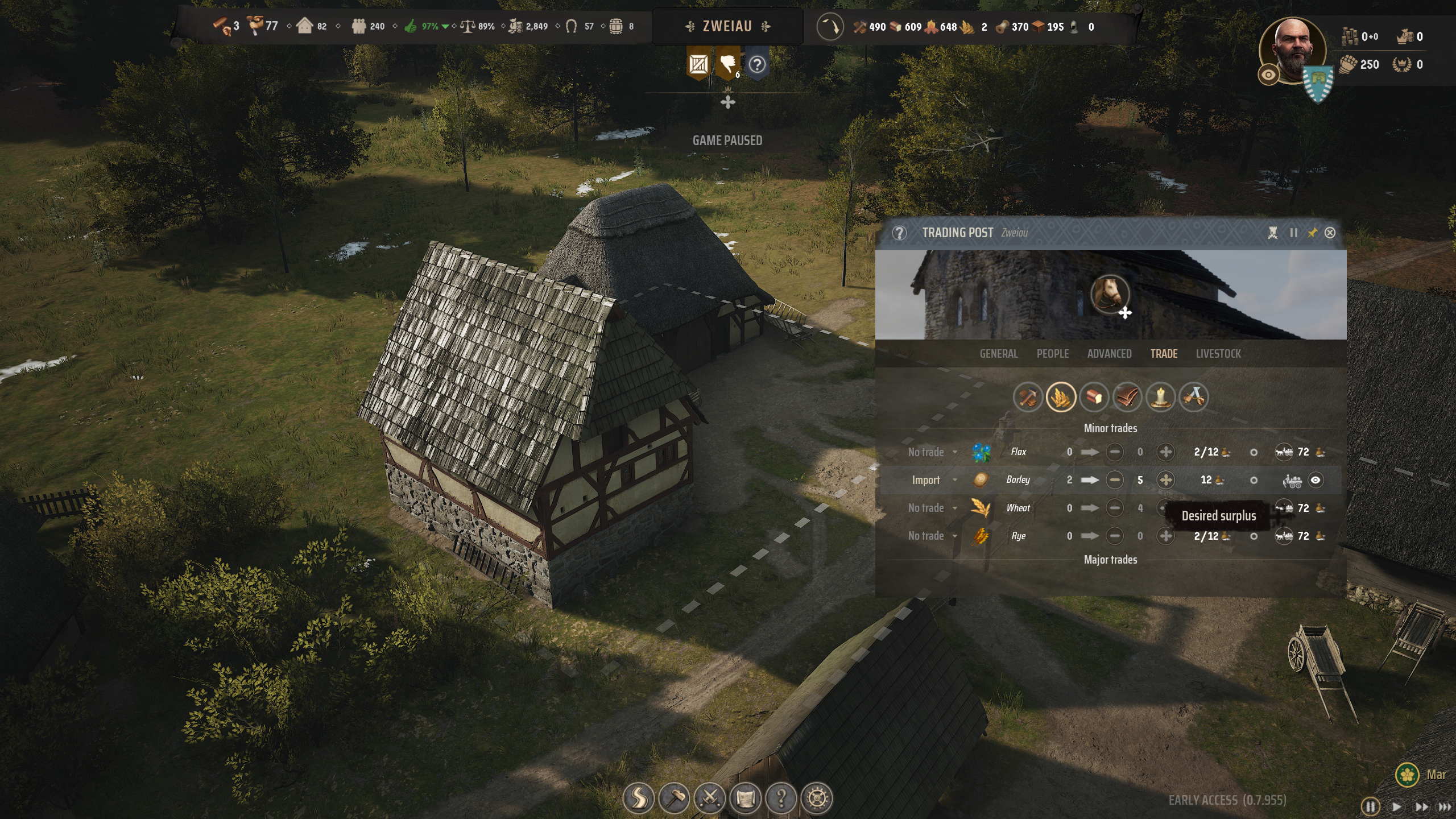Why Ale is Essential in Manor Lords
As your Manor Lords village expands, the need for ale becomes crucial to keeping your villagers content. Providing them with access to ale becomes necessary when upgrading burgage plots to level 3 and advancing your town to a Small Village.
Making ale and ensuring your town’s tavern is well-supplied requires a detailed process. Cultivating barley on a farm, operating a malthouse, converting a burgage plot to a brewery, and managing a staffed tavern are all necessary steps in this complex endeavor. If barley cannot be grown due to infertile land or other reasons, establishing a trade route becomes essential.
Managing all these steps can be overwhelming, so we will guide you through each one below.
Farm Barley for Ale Production
Barley farming involves similar principles to other crop cultivation. Identifying a suitable location with the barley fertility overlay, characterized by yellow or green areas, is the initial step. Subsequently, creating multiple plots is necessary for successful barley growth.

When planning your farm field layouts, remember that a family can manage approximately 0.6 morgen of field per year. Implementing a rotation system to maintain soil fertility is crucial. Therefore, establishing three small plots, each around 0.3 morgen, and leaving one fallow each year is recommended. This strategy will provide enough barley to kickstart your ale production.
Upon setting up a farm, the barley should be harvested in autumn and processed into…
Process Barley into Malt at a Malthouse
Once harvested, barley needs to be processed in a dedicated building known as a malthouse (4 timber), where a family must be assigned to handle the task. The malthouse converts 1 barley into 1 malt, which is then transferred to a brewery.
Establish a Brewery at a Burgage Plot (Level 2)
When upgrading a burgage plot to level 2, various new extensions become available for the backyard industry. One such extension is a brewery (5 Regional Wealth, 5 planks), which transforms 1 malt into 1 ale.

It’s important to note that converting a burgage plot into a brewery upgrades all families living there to artisans. This designation restricts them from engaging in other occupations and removes them from the unassigned families labor pool.
However, ale alone is not sufficient. Ale in its basic form serves as a commodity stored in the brewery’s pantry and the town’s granary. To fulfill the requirements of a level 2 burgage plot, as well as your town’s needs, a tavern is essential.
Construct a Tavern

A tavern (5 timber) is where the ale becomes functional. Assigning at least one family to transport ale from the granary to the tavern is necessary for distribution to the town. This process fulfills the tavern supply requirement for both your burgage plots and your town. As your town grows, you may need to expand barley fields, increase malthouse staff, and consider adding a second brewery.
At any stage in this supply chain, you always have the option to…
Construct a Trading Post for Importing Supplies
In instances where barley production in your region is challenging, and importing supplies is necessary due to poor fertility, a trading post (4 timber) becomes vital. This facility allows for importing and exporting goods through traveling merchants, with trade involving Regional Wealth costs for imports and earnings for exports.

Assigning a family to work at the trading post enables you to manage goods through the Trade tab. This feature allows you to review available goods and decide on importing, exporting, or full trade until achieving the desired surplus. For importing ale ingredients, such as barley, malt, or ale, costs vary and require the establishment of a trade route to facilitate the regular arrival of traveling merchants. It’s essential to maintain a robust export business to sustain the cost of importing supplies.
Remember that importing ale ingredients can be expensive, underscoring the importance of supporting the operation with a strong export strategy.
